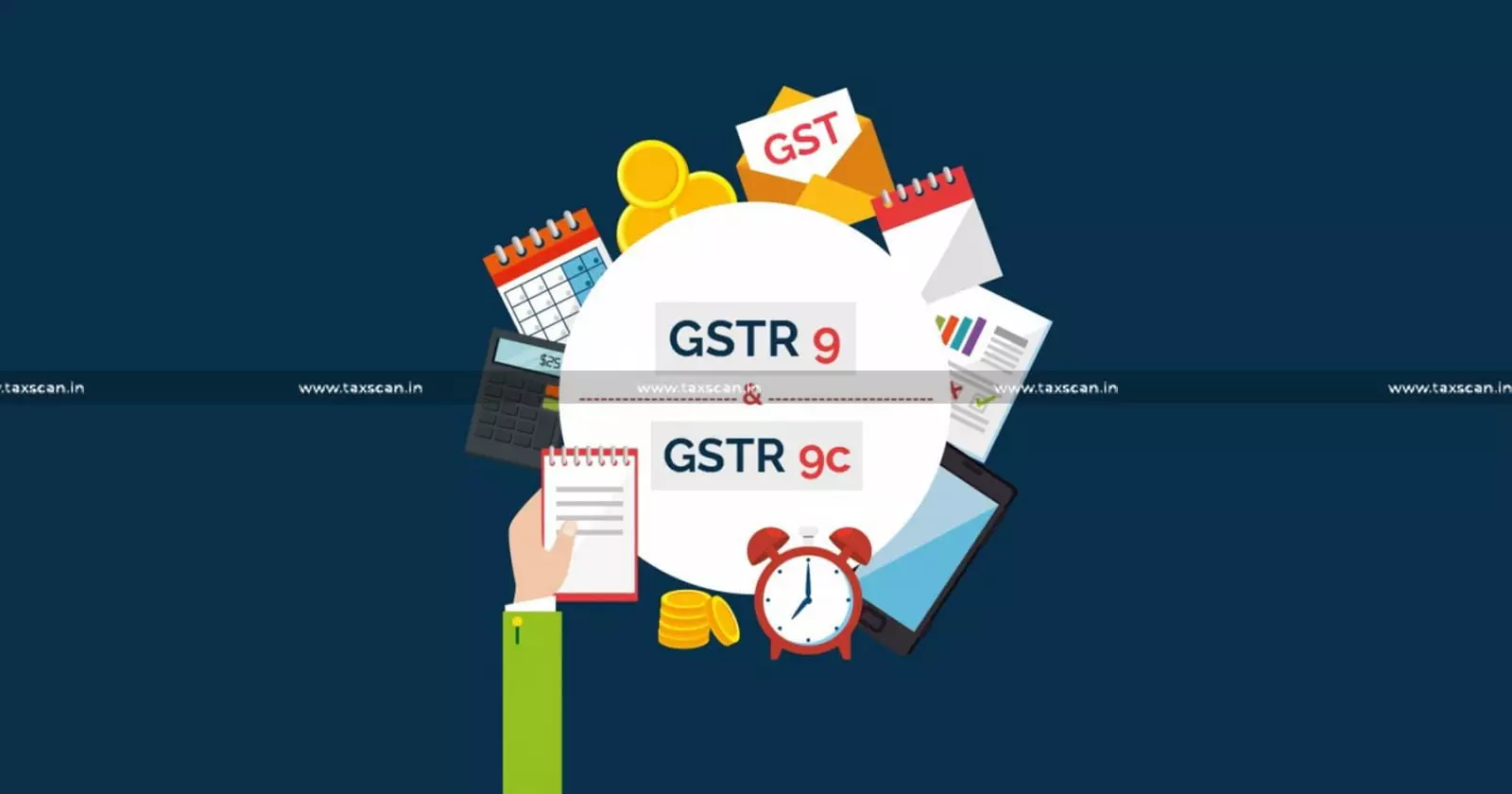Key Changes in GSTR-9 and GSTR-9C for FY 2024-25: Everything You Should Know
A clear overview of all major changes in GSTR-9 and GSTR-9C for FY 2024-25 to help taxpayers prepare before the 31 December 2025 deadline

The GST annual reporting process for FY 2024-25 has undergone several important updates. These changes affect how taxpayers must report Input Tax Credit (ITC), tax payments, reversals, and reconciliations in GSTR-9 and GSTR-9C.
1. Filing Requirements and Due Date
- Businesses with an annual turnover above Rs. 2 crore must file GSTR-9.
- Businesses with an annual turnover above Rs. 5 crore must file GSTR-9C.
The due date for filing both returns is 31 December 2025.
2. Key Changes in GSTR-9
A. Table 7: Separate Reporting of ITC Reversals
Two new fields have been added for:
- ITC reversed under Rule 37A (when the supplier does not pay tax).
- ITC reversed under Rule 38 (mandatory 50% reversal for banks/financial institutions).
Earlier, such reversals could be grouped together. Now they must be reported separately.
Master GSTR-9 & GSTR-9C — From Compliance to Litigation Strategy, Click Here
B. Table 9: Two New Columns Added
Table 9 now includes:
- Total Tax Paid – total of cash and all types of ITC.
- Difference Between Tax Payable and Paid – any remaining tax liability must be paid through DRC-07.
C. Tables 12 and 13: Mandatory if Applicable
These tables track adjustments related to ITC across years:
- Table 12: ITC of FY 2024-25 that was reversed in FY 2025-26.
- Table 13: ITC of FY 2024-25 that was availed in FY 2025-26 (up to the October 2025 GSTR-3B).
If such ITC exists, reporting these details is compulsory.
D. Table 17: HSN Summary Download Enabled
The GST portal now allows downloading a consolidated HSN/SAC summary from GSTR-1. This makes filling Table 17 easier and reduces manual efforts.
E. Major Changes in Table 8 (ITC as per GSTR-2B)
1. Table 8A restricted to FY 2024-25 ITC
Table 8A will now include only ITC entries that belong to FY 2024-25, even if they appear in GSTR-2B of April to October 2025.
2. Invoice-wise Table 8A details available
A new feature allows downloading the source invoices for Table 8A directly from the portal.
3. ITC reversed and reclaimed not to be duplicated in 8C
If ITC was:
- claimed in FY 24-25,
- reversed in FY 24-25, and
- reclaimed in FY 25-26,
it should not be reported in Table 8C because it is already part of Table 6B.
Master GSTR-9 & GSTR-9C — From Compliance to Litigation Strategy, Click Here
4. Table 8B will now auto-populate only from Table 6B
- Earlier, reclaimed ITC (Table 6H) also auto-populated, which caused mismatches.
- Now, only regular ITC from Table 6B will be considered.
5. New Table 8H1 for import ITC
A new line has been added to report import-related ITC of FY 2024-25 that is availed in FY 2025-26. This must also be included in Table 13.
F. Changes in Table 6: New ITC Segregation
Table 6A has been split into two parts:
- 6A1: ITC of FY 2023-24 that is claimed in FY 2024-25 up to October 2025.
- 6A2: Remaining ITC that falls under the original 6A.
ITC reclaimed due to Rule 37 or 37A (non-payment to supplier or non-payment of tax by supplier) must be shown under Table 6H, not 6A1.
3. Key Changes in GSTR-9C
A. Table 5O: No Clubbing of Adjustments
- Earlier, several reconciliation differences could be grouped into Table 5O.
- Now, adjustments from Tables 5C to 5N must be shown separately.
- Only opening unbilled revenue may still be included in 5O.
B. New Table 17: Late Fee Reporting
Late fees will now apply to delays in filing both:
- GSTR-9
- GSTR-9C
A new table has been added to show late fee payable and late fee paid.
Late fee calculation:
- For GSTR-9: calculated from the due date to the filing date.
- For GSTR-9C: calculated from the later of the GSTR-9 filing date or original due date up to the date of filing GSTR-9C.
4. Practical Clarifications for ITC Reporting
Based on the detailed explanations:
Master GSTR-9 & GSTR-9C — From Compliance to Litigation Strategy, Click Here
6A1 vs 6H
- Use 6A1 when previous year's ITC is claimed in the normal course.
- Use 6H when previous year's ITC is reclaimed due to Rule 37 or 37A.
What goes into 8C
- Only ITC relating to FY 2024-25, which appears in GSTR-2B of FY 2025-26 and is claimed in FY 2025-26 (up to October), should be reported in Table 8C.
5. What These Changes Mean for Taxpayers
- More precise year-wise segregation of ITC is required.
- Greater dependency on GSTR-2B data for annual reporting.
- Auto-populated fields have improved for accuracy.
- Reconciliation items must be reported with greater detail, especially in GSTR-9C.
- Late fee will now apply to both annual forms, not just GSTR-9.
Support our journalism by subscribing to Taxscan premium. Follow us on Telegram for quick updates


